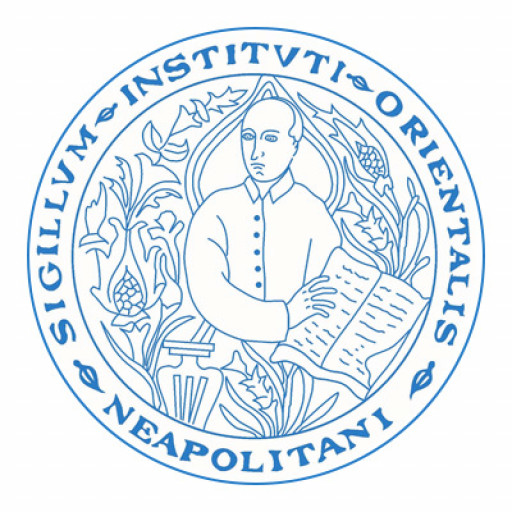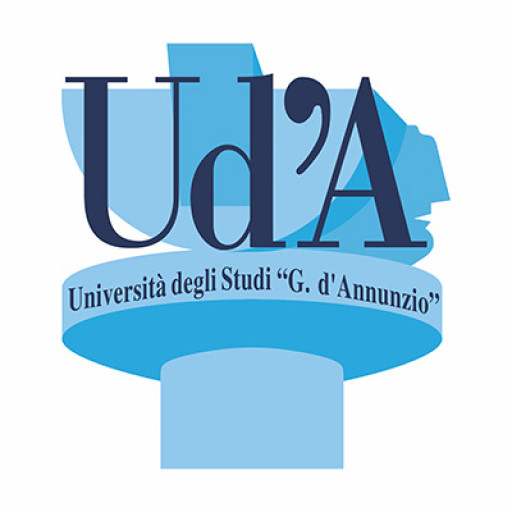Photos of university / #universidadjaen
Master's Degree in Space Archaeology at the University of Jaén offers a pioneering and comprehensive curriculum designed to equip students with the specialized skills and knowledge necessary to explore and analyze archaeological sites and artifacts through the lens of space technologies. This innovative program combines traditional archaeological methods with modern remote sensing, geographic information systems (GIS), satellite imagery analysis, and other cutting-edge tools, enabling graduates to contribute significantly to the discovery, documentation, and preservation of cultural heritage on a global scale. Students will engage in interdisciplinary coursework that covers various aspects of space archaeology, including the interpretation of satellite data, the use of aerial photography, and the integration of technological advances in archaeological research.
The program is aimed at students with backgrounds in archaeology, geology, anthropology, geography, or related fields who wish to expand their expertise into the rapidly growing domain of space-based archaeological investigation. Throughout the program, students will participate in practical projects and fieldwork, utilizing data from international satellite programs and collaborating with experts in the field. The curriculum emphasizes critical thinking, technical proficiency, and innovative research methods, ensuring that graduates are well-prepared to operate in academic, governmental, and private sectors involved in cultural heritage preservation, environmental monitoring, and archaeological research.
The Master's Degree in Space Archaeology also provides opportunities for internships and collaborations with national and international organizations, fostering professional networks and real-world experience. The program aims to promote scientific advancement in the understanding of archaeological phenomena through space technology, contributing to the preservation of global cultural heritage and the development of sustainable archaeological research methods. Graduates will be capable of conducting advanced spatial analyses, producing detailed archaeological maps, and contributing to the academic literature with original research. With a strong emphasis on innovation and technological application, the program positions its students at the forefront of archaeological exploration in the digital age.
The Space Archaeology degree program at the University of Jaén offers students a comprehensive introduction to the emerging field that combines archaeological methods with space technology to explore and analyze planetary surfaces, celestial bodies, and extraterrestrial environments. This innovative program aims to equip students with the skills and knowledge necessary to contribute to the understanding of archaeological phenomena beyond Earth, applying remote sensing, geospatial analysis, and satellite imagery to archaeological research. Throughout the course, students will learn about the integration of space science with archaeological inquiry, gaining expertise in interpreting data collected from satellites, drones, and other remote sensing tools.
The curriculum covers fundamental topics such as planetary geology, remote sensing techniques, Geographic Information Systems (GIS), and image processing. Students will also explore the history of space exploration and its implications for archaeology, understanding how space technology can open new frontiers in discovering ancient sites, artifacts, and cultural landscapes that are otherwise inaccessible. Practical components include hands-on training in data analysis using professional software, fieldwork activities, and projects that simulate real-world archaeological reconnaissance using satellite images and aerial photographs.
Moreover, the program emphasizes interdisciplinary collaboration, encouraging students to work with experts in astronomy, geology, archaeology, and computer science. By engaging in research projects and internships, students will gain valuable experience and develop a professional portfolio that prepares them for careers in academia, cultural heritage preservation, space agencies, or private industry connected to space exploration and remote sensing technologies.
Graduates will be capable of conducting innovative archaeological investigations using space-based data, contributing to the preservation of world heritage, and advancing scientific knowledge of planetary environments. The program aims to foster critical thinking, technical proficiency, and ethical awareness in the application of space technologies to archaeological science, positioning students at the forefront of this exciting and interdisciplinary field.
The Space Archaeology program at the University of Jaén is designed to provide students with comprehensive knowledge and practical skills in the emerging field of archaeological research utilizing space technologies. The curriculum encompasses a multidisciplinary approach, integrating principles of archaeology, remote sensing, geographic information systems (GIS), satellite imaging, and data analysis. Students will explore the applications of space-based observations in detecting, documenting, and analyzing archaeological sites and features, significantly enhancing preservation efforts and cultural heritage management. The program requires students to complete coursework in core subjects such as Introduction to Space Archeology, Remote Sensing Technologies, Satellite Data Analysis, GIS Applications in Archaeology, and Conservation of Cultural Heritage. Additionally, students must undertake practical training through laboratory work, field projects, and internships with research institutions or archaeological sites employing space technology solutions. A research thesis is a mandatory component, enabling students to undertake original investigations in topics like archaeological site detection, landscape archaeology, or cultural resource management using remote sensing data. Prospective students are expected to possess a strong background in archaeology, geography, or related disciplines, along with basic computer skills and an interest in technological applications. Prior knowledge of GIS or remote sensing is advantageous but not obligatory, as foundational courses are provided. The program emphasizes critical thinking, analytical skills, and technical proficiency, aiming to prepare graduates for careers in archaeological research, cultural heritage conservation, environmental monitoring, or academic and scientific research institutions. The duration of the program is typically two academic years, with a combination of lectures, practical sessions, project work, and thesis research. Successful completion of the degree certifies the student's expertise in integrating space technology into archaeological research, supporting the preservation and understanding of cultural heritage through modern digital tools.
The University of Jaén offers a comprehensive financing structure for students enrolled in the Space Archaeology program. Tuition fees are set in accordance with the regulations established by the Andalusian regional government and are subject to annual revision. For local, national, and international students, the tuition fee per academic year typically ranges between €1,200 and €1,800, depending on the number of credits enrolled and specific course requirements.
In addition to tuition fees, students have access to various financial aid options. The university provides scholarships based on academic merit, economic necessity, or specific criteria such as research excellence and extracurricular involvement. These scholarships may cover partial or full tuition fees and sometimes include allowances for living expenses. Students are encouraged to apply early through the university’s official scholarship portal, which periodically updates the available funding programs in coordination with regional governments and national agencies.
The university also participates in the Erasmus+ mobility program, enabling students to undertake part of their studies in partner universities across Europe. This exchange program often includes financial support for travel and accommodation costs, which significantly reduces the economic burden on participating students. Furthermore, students may be eligible for student loans offered by national financial institutions, with favorable interest rates and repayment terms designed to facilitate access to higher education.
Part-time employment opportunities are available on campus and in the surrounding community, allowing students to supplement their income while pursuing their studies. The university’s career services frequently organize job fairs and internship placements in relevant fields, including cultural heritage and archaeological research, which can provide both financial benefits and valuable professional experience.
International students should also consider additional costs such as health insurance, visas, and travel, which are not covered by university funding but are essential for their stay in Spain. The university offers guidance and support to help students plan their finances and access available funding sources. Overall, the financing studies of the Space Archaeology program are designed to be flexible and inclusive, aiming to enable deserving students to pursue their academic goals without undue financial hardship.
The Bachelor’s Degree in Space Archaeology at the University of Jaén is an innovative academic program designed to equip students with the specialized knowledge and skills necessary to investigate and preserve archaeological sites and artifacts using space technology. The program integrates traditional archaeological methods with advanced remote sensing, satellite imagery, and GIS (Geographic Information Systems) techniques. Students will learn how to analyze data obtained from satellites and other aerial platforms to detect, monitor, and assess archaeological remains and landscapes, particularly in areas that are difficult to access or vulnerable to environmental threats. The curriculum covers a broad range of topics including remote sensing applications, digital image processing, geography, environmental sciences, and conservation techniques, all tailored to archaeological research.
The program aims to prepare graduates for diverse careers in archaeological research, cultural heritage management, environmental monitoring, and academic research. Through a combination of theoretical coursework and practical fieldwork, students will develop the ability to interpret space-based data, integrate multidisciplinary approaches, and contribute to the preservation of cultural heritage. The University of Jaén emphasizes research-driven education and offers students opportunities to participate in projects leveraging space technology for archaeological exploration. The program also fosters skills related to data analysis, technical report writing, and scientific communication, ensuring graduates are well-equipped for the global job market. Despite the specialized focus on Space Archaeology, the university adapts its methodologies from similar programs in the fields of archaeology, geography, and environmental sciences, ensuring comprehensive training. The program's unique aspect is its emphasis on employing space technology as a tool for uncovering and protecting archaeological sites, which aligns with contemporary trends in digital archaeology and heritage science. Graduates of this program will be positioned at the forefront of interdisciplinary research, combining archaeology with cutting-edge technological tools to contribute to the understanding and safekeeping of human history through innovative exploration methods.





